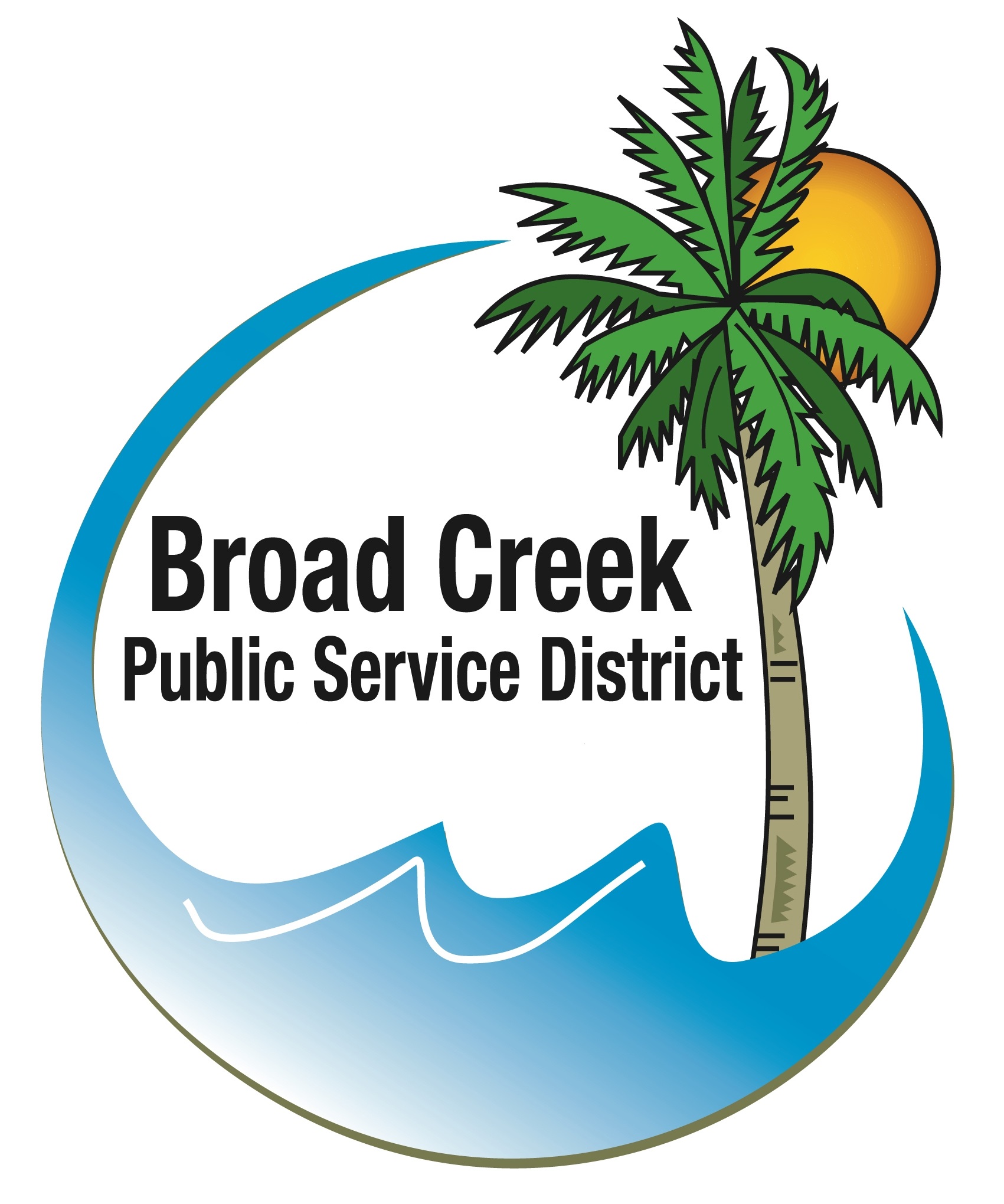Conservation Tips
Water is a limited resource that can quickly become scarce if we do not take measures to conserve and protect it. It is important that each of us makes certain that we are consuming water wisely.
KEEPING WATER PLENTIFUL
Although we are surrounded by water, most is not drinkable. In fact, only 3% of the world's water is fresh water and of this, 2/3 is stored in icecaps and glaciers. That leaves only 1% of the world's water available for drinking.
SAVE MONEY
We are now using more expensive Savannah River water to meet peak demands. The more we consume; the higher cost to the District. There are numerous water-saving devices on the market. Look for aerators, flow regulators and displacement devices to make your home conservation friendly.
DON'T CLOG UP THE WORKS
Your household plumbing system and the Broad Creek PSD wastewater collection system share the same common enemies - grease, oil, congealed foods, coffee grounds and such non-biodegradable items as paper towels, baby diapers, plastics and even cigarette filters and chewing gum. While they may seem to disappear when rinsed down the sink or toilet, they tend to collect, bond and ultimately clog critical junctures in your plumbing system and in our wastewater collection network.
It may take weeks for enough foreign material to accumulate before a toilet or sink begins to back up, or for enough blockages to occur to interrupt the flow of wastewater through our collection system. But the consequences can be far more severe than an inconvenient and unpleasant clean up task.
Please think about the consequences before you put one of these common enemies down your sink or into your toilet. It will safeguard your plumbing and our wastewater collection system.
DON’T FLUSH “FLUSHABLES”
The flushable wipes controversy is really a common-sense exercise. If you moisten a single sheet of toilet paper and rub it on your skin or a hard surface, you’ll discover it rapidly falls apart. This is by design. You want toilet paper to disintegrate as fast as possible into the tiny cellulose fibers used to create it. If you do the same test with a flushable wipe, you’ll quickly discover they hold together even better than paper towels. Can you imagine what happens if there’s not enough water to transport these through your drain and outside buried sewer line out to your city sewer? They’re likely to cause a clog at some point.
These wipes also survive the long and tortuous journey from homes through miles of sewer pipes, ending up in treatment plants. There, they can clog the industrial pumps at the plants. If you must use them in your home, it is suggested you dispose of them in a sanitary way in a special waste bin, much like you’d store a soiled baby diaper until trash day.
“Fit2Flush” video produced by Beaufort-Jasper Water and Sewer Authority:
FIX ALL LEAKS
Check all faucets, including outside hose connections.
Check your toilet for “invisible”leaks. Add several drops of food coloring to the toilet tank and let it stand for approximately 30 minutes. Do not flush the toilet during this period. If the coloring appears in the bowl, there is a leak. This is the only way to detect this common problem. It is recommended that you perform this test every six months since the rubber components in the tank deteriorate rapidly.
Does your toilet get stuck or run continuously when flushed? This would cause a fluctuation in usage, but would not be detected as a leak unless it is running while you are investigating.
